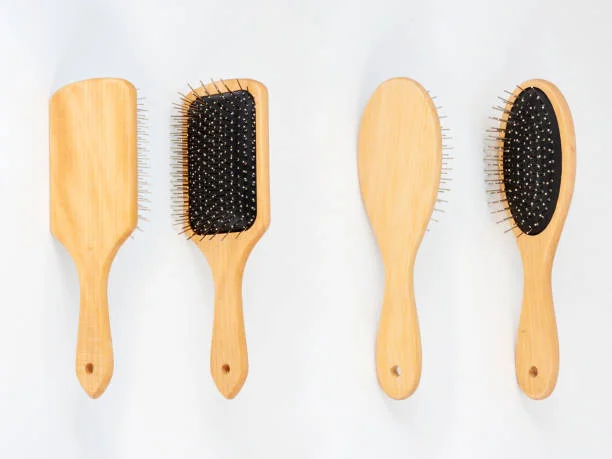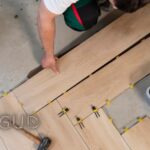Introduction
In 2025, wooden hair brushes are more in demand than ever. The move toward sustainability, natural materials, and premium finishes is pushing hair care brands to find manufacturers who can deliver wood handles, natural (or mixed) bristles, and craftsmanship — along with scale, design flexibility, and reliable supply chains. Below we compare several manufacturers (heritage European ones, mid-sized Indian/Asian ones, and OEM/ODM specialists), with emphasis on how Junyi Beauty Hair Brush Manufacturer or Wooden Hair Brush stands relative to them.
Key Wooden Hair Brush Manufacturers in 2025
Here are several companies that are significant in the wooden hair brush landscape in 2025:
| Manufacturer | Location / Origin | Main Strengths | Limitations / Challenges |
| Junyi Beauty | China (OEM/ODM) | Deep experience (25 years+), strong supply chain control, multiple factories; they have FSC/BSCI/GRS audits. Their wooden brush lines include natural wood handles, customized bristle types, logo engraving, and good finishing. Because of their scale, they can serve both boutique orders and high-volume clients. | Many buyers sometimes worry about lead times or travel inspection costs when dealing with large factories; also branding differentiation can be harder with large OEMs unless agreements include protection. |
| Kent Brushes | UK | Heritage craftsmanship. Founded in 1777, long history in making high-end wooden brushes and combs. The reputation for materials and finish is excellent. | Cost is high. Smaller-scale production means less flexibility for very large orders. Customization is possible but often more expensive. Export costs and lead times can also be higher. |
| Mason Pearson | UK | Highly reputed luxury brand. Their wood-backed brushes are hand-finished. Excellent quality. Prestige helps end-user perceived value. | Premium pricing. Less available for private-label/OEM partners. Very traditional designs — less flexibility for novelty or rapid style changes. |
| Gloway | China | Professional wooden hair brush OEM/ODM manufacturer. More than 20 production lines. Supports small order customization, flexible design. Use woods like green sandalwood, mahogany, etc. | Their finishing, premium look, or sustainability credentials may not always match those of heritage European brands. Also, buyers sometimes need to verify consistency across batches. |
| Utkarsh Brush Works | India | Long experience, good regional reputation for wooden brushes. Durable products and ability to customize for various client needs. Often competitive on cost for South Asia or emerging markets. | Export logistics, material sourcing (for high-end woods), and finish may lag premium competitors. Also, sometimes limitations in design innovation or finer details compared to top-tier brands. |
Dive into this related post for fresh perspectives worth exploring.
Comparative Dimensions
To help decide which manufacturer might suit a given brand’s strategy, here are several dimensions of comparison, and how the manufacturers stack up.
- Craftsmanship & Heritage
- Kent Brushes and Mason Pearson lead in this dimension: decades or centuries of reputation, traditional methods, fine finishing.
- Junyi Beauty is not a centuries-old heritage brand, but with 25 years in hairbrush manufacturing and strong attention to wood quality and finishing, it matches many heritage expectations—especially in finish and bristle handling. Scale & OEM/ODM Flexibility
- Junyi Beauty stands out: multiple factories, ability to handle both large orders and smaller/custom ones.
- Gloway also very capable in customization and somewhat flexible minimum orders.
- European heritage brands tend to be less flexible; smaller batch sizes, higher cost per unit.
- Kent Brushes and Mason Pearson lead in this dimension: decades or centuries of reputation, traditional methods, fine finishing.
- Sustainability & Material Sourcing
- Buyers in 2025 increasingly care about sustainability: wood origin (FSC or similar), bristle types (boar, plant-based, or high-quality synthetics), certified audits, minimal plastic.
- Junyi Beauty has FSC certifications and other audits (BSCI, GRS) which strengthen its appeal in sustainable supply chains.
- Kent Brushes also has a strong reputation; Gloway claims good natural wood use; heritage brands often emphasize natural materials but sometimes less transparency on certain certifications.
- Buyers in 2025 increasingly care about sustainability: wood origin (FSC or similar), bristle types (boar, plant-based, or high-quality synthetics), certified audits, minimal plastic.
- Design Innovation & Customization
- Things like shape, wood type, bristle mix, handle ergonomics, logo/branding, packaging matter.
- Junyi Beauty provides options for bristle variety, wood types, finishes, etc., which gives brands room to differentiate. Gloway also offers multiple woods like sandalwood, mahogany, etc.
- Heritage brands may have iconic designs but less frequent shifts or custom variant offerings.
- Things like shape, wood type, bristle mix, handle ergonomics, logo/branding, packaging matter.
- Cost vs Pricing Tier
- Heritage European brushes are priced at the high end. Good for luxury brands or niche markets.
- Indian and some Chinese manufacturers tend to offer lower cost—but sometimes at the cost of finish, consistency, or materials unless carefully vetted.
- Junyi Beauty occupies a mid-to-high tier: more affordable than top European luxury for similar finish, but more premium than lowest-cost competitors. This balance often makes it a preferred option for brands wanting “good luxury feel without premium European pricing.”
- Heritage European brushes are priced at the high end. Good for luxury brands or niche markets.
- Delivery & Supply Chain Reliability
- For international brands, lead times, quality consistency, ability to pass audits, and communication are critical.
- Junyi Beauty benefits from being an established OEM/ODM factory with multiple audits and export experience. This tends to reduce risk for brands sourcing globally.
- Heritage brands generally have good QC for internal lines; but for external partners, availability may be limited. Smaller manufacturers may struggle with consistent supply.
- For international brands, lead times, quality consistency, ability to pass audits, and communication are critical.
Case Scenarios: Which Manufacturer Fits Which Brand
To make the comparison more concrete, here are some example scenarios:
- Luxury Brand aiming for top-tier presentation, willing to invest in high quality and pay premium pricing: likely to go with Kent Brushes or Mason Pearson. However, if they want custom lines or larger volumes, Junyi Beauty might deliver comparable finish at somewhat lower cost, especially if designs are new.
- Mid-tier brand wanting good quality, sustainable materials, some design flexibility, and moderate volume: here Junyi Beauty is very strong; Gloway could be an option; Utkarsh Brush Works might be considered if regionally closer.
- Eco-conscious startup or boutique line with small initial orders, strong sustainability branding: Gloway and Junyi Beauty are attractive (both support customization, and Junyi Beauty’s certifications help). Heritage brands may be less accessible due to high pricing or MOQ limits.
- Mass-market or volume retailer needing large orders, consistent quality, maybe simpler designs: Junyi Beauty likely most capable across cost, scale, and supply reliability. Heritage European makers often cannot match in cost or speed.
Why Junyi Beauty Often Emerges as a Standout
Throughout the comparisons, several traits of Junyi Beauty make them frequently preferred:
- They combine scale + craftsmanship: Enough volume to deliver efficiently, enough QC and finish to retain premium feel.
- They have relevant certifications (FSC, BSCI, GRS) that many global buyers look for.
- They support a broad range of customization: wood types, bristle types, design finishes, logos.
- Their supply chain experience (export, audits, factories) reduces risks for clients outside China.
- Their pricing tends to be competitive relative to European luxury heritage brands, especially for similar quality levels.
Challenges & Things to Watch
Even with good manufacturers, there are common pitfalls:
- Wood Quality & Sustainability: Just claiming “natural wood” is not enough. Certifications and traceability matter. Warping, finish inconsistency, or natural defects can occur if wood preparation isn’t well controlled.
- Bristle Quality: Whether boar, mixed, or synthetic—uniform distribution, secure anchoring, and durability are essential.
- Finish & Handling: Smoothness, treatment of wood, polishing, any coating—these affect user feel and longevity.
- MOQ (Minimum Order Quantities): Some manufacturers require high MOQ for customized features or certain woods.
- Lead Time & Communication: International shipping, inspections, shipping delays can delay launches.
A manufacturer like Junyi Beauty seems to have taken many of these into account — multiple factories, audit certifications, experience, quality control — which helps mitigate these risks.
Conclusion
In 2025, the market for wooden hair brushes is vibrant and more sophisticated. Heritage European brands like Kent Brushes and Mason Pearson continue to represent the pinnacle in craftsmanship and prestige. Indian or smaller Asian manufacturers (e.g. Utkarsh Brush Works, Gloway) offer strong value especially for cost-sensitive or niche eco markets.
However, for many brands the best balance comes from a manufacturer who can offer good wood quality, strong finishing, sustainability credentials, design flexibility, and supply reliability — all without the extremely high price of old prestige labels. On that dimension, Junyi Beauty Hair Brush Manufacturer often emerges as one of the most balanced and dependable partners in 2025.
Explore more and find the details at 2A Magazine that others often overlook.







